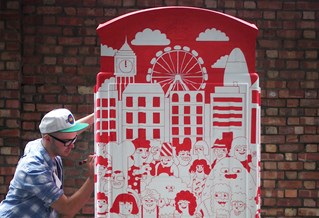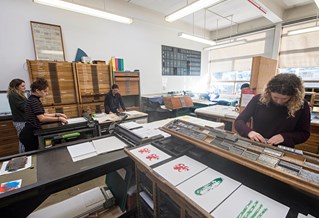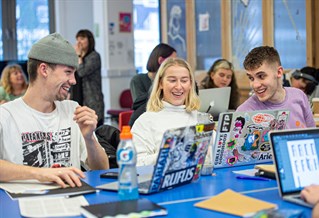
Pathway to a rewarding creative career
We will help you to develop as an artist and explore your commercial potential, so you’ll be ready for a fulfilling creative role when you graduate. Our alumni include It’s Nice That founders Will Hudson and Alex Bec, Kinfolk Magazine creative director Charlotte Heal, Tate Galleries designer Chani Wisdom, music video director David Wilson, illustrator Dan Woodger and creative director Aneel Kalsi.

Specialist workshops and technical expertise
Whether you’re into digital or games design, animation, drawing, or want to explore traditional techniques such as letterpress and bookbinding, our visual communication courses allow you to experiment and find your creative sweet spot. You’ll be guided by a team of artists, designers, industry professionals and technicians.

Join a community of artists
You will be part of a stimulating creative environment where collaboration and peer discussion within your course and beyond brings exciting opportunities. You’ll have the opportunity to show your work throughout your degree and your studies which will culminate with the Graduate Show, an important event in the Brighton arts calendar.